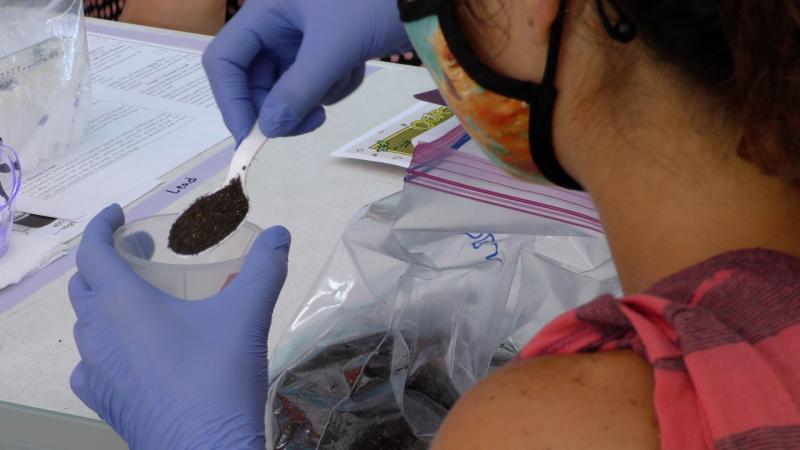Rensselaer scholar to broaden scope of research globally
October 13, 2021

An ongoing project is helping people identify lead and arsenic pollution and enabling a novel approach to sociological research. Abby Kinchy, professor in the Department of Science and Technology Studies at Rensselaer Polytechnic Institute, describes her research approach as “ethnographic soil testing” — a novel method for studying how people encounter environmental hazards, reason through exposure risks, and take action to improve the health of their communities.
“The goal is not only to make soil screening tools available to more people,” Kinchy said. “It is also to better understand soil contamination as a social problem.”
Lead and arsenic dispersal into the environment turns soil into an exposure pathway. Kinchy hopes to help communities to change the circumstances in which heavy metal exposures occur, by studying how environmental, social, and economic factors interact.
With a two-year, $500,000 National Science Foundation (NSF) grant, Kinchy’s team is using community science to help people find contaminated soils and take action to prevent exposure to them. They developed a Community Soil Study Toolkit, a low-cost, easy access set of tools for screening soil for lead and arsenic.
Community workshops conducted this summer trained Capital Region residents to use the toolkit and take action to prevent exposure to any contaminated soils that they found.
Now, with additional NSF funding, Kinchy will conduct research for a book about how scientists, decision-makers, and affected communities attempt to reduce the harms caused by soil lead. She intends to expand the research project globally, using ethnographic soil testing in Chile, England, and Australia.
The interdisciplinary research team joining Kinchy on the project includes Kathy High, professor of arts at Rensselaer, Dan Walls, a post-doctoral researcher at Rensselaer, Mónica Ramirez-Andreotta from the University of Arizona, Salvatore Engel-Di Mauro at SUNY New Paltz, and Sebastián Ureta at Alberto Hurtado University in Chile.
The community workshops were conducted at the NATURE Lab at the Sanctuary for Independent Media in Troy, New York.